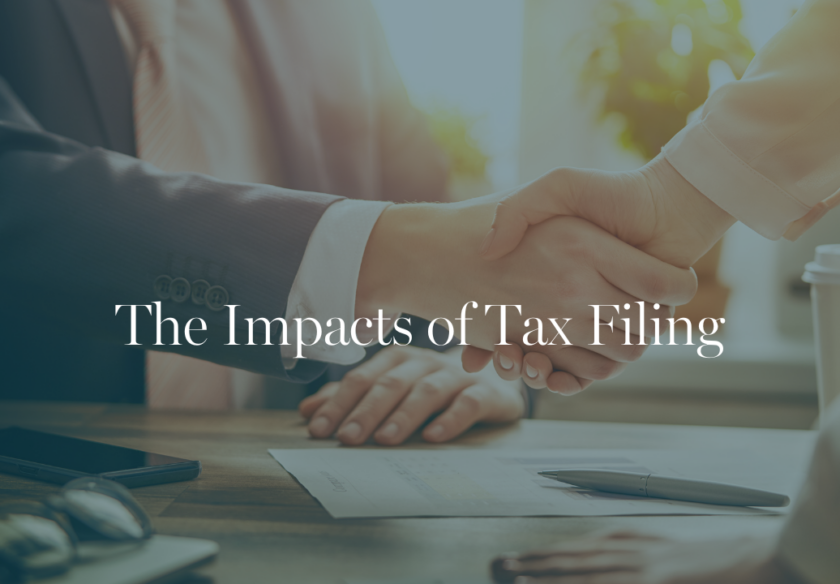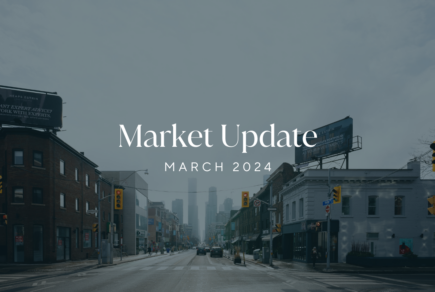
Tax season is officially upon us. With less than two months before Canada’s income tax filing deadline (it’s Sunday, April 30 — mark your calendars), now’s the perfect time for a personal finance lesson: Your taxes can majorly impact your home purchasing power, mortgage approval and even refinancing options.
This is especially true if you were self-employed or earned variable income — including bonuses, commissions, or overtime pay — in 2022.
For those of you who fit these criteria and are already house-hunting or have plans to invest in the Toronto market at some point this year, here are 3 questions to ask while filing your taxes over the next few weeks.
1. How much did you make last year — and was it more or less than you made in 2021?
When you approach a bank or other lender about a mortgage, they’ll typically calculate your borrowing capacity based on your average income over the past two years. For instance, if a Heaps Estrin client was approved for a $1.5M mortgage in the fall of 2022, their lender would have used the average of their 2020 and 2021 income — pulled from the taxes they filed in the spring of 2021 and 2022, respectively — to qualify them for said loan.
However, if your 2022 income was less than what you made in 2021 — which can be the case for individuals who run their own businesses, freelance, work commission-based jobs, or who changed roles or employment status over the past year — lenders will likely only consider the most recent year’s income when qualifying you for home financing.
PRO TIP: If your income has dropped since last year and you plan to buy a home soon, now is an ideal time to connect with your mortgage advisor to determine how that may impact your borrowing power. If possible, do this before the tax filing deadline.
2. If you are (or were) self-employed, have you claimed all your eligible expenses?
If you’re planning to buy or refinance a home and want to maximize your mortgage, it’s a good idea to go through all your eligible expenses with a fine-tooth comb and talk to an accountant and mortgage advisor before filing your taxes this year.
Why? Because when you’re self-employed, there are a lot of expenses you can claim that affect your gross income. Folks with a registered Canadian business also have some flexibility on how much they earn through salary versus money that’s kept in a business account or paid out in other ways (dividends, for example).
INSIDER ADVICE: Here at Heaps Estrin, we’ve worked closely with and readily recommend the following local experts for tax filing advice: Jordan Weinberg (CPA, CA), Partner at MNP and Steven Albiani (CFP, FBA), Managing Partner at Stratum. They’ll work with you to file while finding tax efficiencies that help you land a great rate and maximize your purchasing power.
3. Does last year’s income affect your mortgage pre-approval?
If you were pre-approved for a mortgage last year but didn’t end up buying, it’s time to revisit your loan amount to make sure everything still lines up — and to see if you can perhaps unlock even more financing.
Many people who were self-employed or had variable income over the past couple of years earned less than average in 2020 and 2021 due to the impact of COVID. But last year, Toronto felt like it really reopened and — particularly for those of you who earned a commission, received a bonus, worked hourly or received overtime pay in 2022 — that may have had a positive impact on your income. Lenders will take that into account, so if you made a lot more in 2021 than you did over the past two years, that can be used to increase your borrowing power.
This blog was written in collaboration with Joanna Lang, Managing Partner at Outline Financial, a boutique Toronto-based mortgage and insurance brokerage that pairs new and soon-to-be homeowners with great mortgages, the right insurance plans, and expert advice. If you have any specific questions about home financing and the impact of income tax filing on your purchasing power, please contact us at info@heapsestrin.com or email Joanna at joanna.lang@outline.ca.


